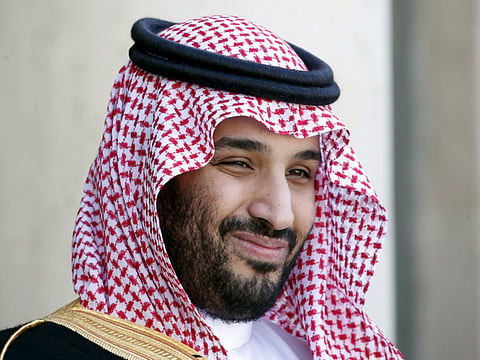Shaping a solid future for Saudi Arabia
Vision 2030, when applied, will essentially mean that the Kingdom will be largely transformed

Any break with the pace of change in Saudi Arabia is epochal. And that is what Deputy Crown Prince Mohammad Bin Salman, who’s also Minister of Defence, embarked on when he secured King Salman Bin Abdul Aziz’s approval to introduce a gargantuan new economic plan for Saudi Arabia.
Vision 2030, when applied, will essentially mean that the kingdom will be largely transformed not only in socio-economic terms but also in the degrees of accountability, as well as the norms of work ethic that will surprise many. Of course, the ambitious plan will not be easy to implement and while there are many challenges ahead, Saudis and most of those who deal with them will see dramatic transformations. The young prince may certainly face considerable hurdles as he goes about his work, though Riyadh is amply aware that complacency is no longer an option, and that the courage to adopt tough innovations is an absolute necessity.
Prince Mohammad’s plan, summarised in a few sentences, concentrates on several key items: first, it aims to gradually take the government out of the business arena, precisely to unleash entrepreneurship; second, it encourages domestic and foreign investments by creating opportunities for the private sector; third, it concentrates on steps to allow Saudis themselves to work and participate in the economy of their country (thereby addressing the youth bulge); fourth, it relies on information technology to fulfil education, health and infrastructure requirements that will, among other concerns, preoccupy decision-makers for generations to come; and fifth — perhaps most critically — it aims to reduce Riyadh’s dependence on oil for the bulk of its revenues to manage the affairs of the state.
Indeed, and in what were carefully set-up recent interviews with the Economist, Bloomberg’s Business Week, Arabian Business and Al Arabiya, Prince Mohammad described how King Salman’s vision aimed to gradually reduce the relative reliance of oil in the Saudi economy not only to encourage diversification but also to open fresh avenues for economic growth. He did not assert that the kingdom would henceforth build an economy free of dependence on oil, which would be absurd given that the commodity was the country’s second most important natural wealth.
Critics seldom acknowledge that Saudi Arabia’s most valuable wealth is its population — but that Riyadh aimed to create incentives to harness talent. Towards that end, Prince Mohammad proposed to privatise about 5 per cent of Aramco, the world’s largest oil company with the capacity to produce nearly 12.5 million barrels per day.
As a fungible commodity, oil was and remains a double-edged sword, because fluctuating prices essentially mean that dependent states see their finances squeezed.
When lower oil prices hit markets, budget deficits soar, which create unhealthy dilemmas. Combined with socio-economic stagnation and, increasingly, regional turmoil that imposes large defence expenditures, Riyadh and its Gulf Cooperation Council partners confront undeniable challenges. That is why the visionary young prince and his advisers thought about, planned, and introduced a truly transformative strategy both to restructure the kingdom’s economy and rewrite its social contract.
Requiring self-reliance
Indeed, this is where the greatest contention lies because, and there is no reason to skirt the issue, what is necessary is a reshaping of the compact between the ruled and their rulers to redefine rights and duties.
To his credit, Prince Mohammad seems to have accepted the challenges that his Vision 2030 created without any prior ideological inclination, aware that the long-term welfare of the kingdom and its citizens is best served by an open and free access to knowledge. Yet, it is essential to ask how planners intend to make the leap between the oil-generation that became accustomed to the welfare environment, which provided cradle-to-grave coverage, and a younger generation that hankers for freedoms? The answer, which is also part of Vision 2030, is to establish the world’s largest sovereign wealth fund at over $2 trillion (Dh7.34 trillion) and, equally important, empower a young generation to assume the burdens of power.
Vision 2030 will take time to implement, but there is no going back and while those who fear change or those who might see vested interests jeopardised might not approve, Saudi Arabia is now fully embarked on a course that will require self-reliance. This, in a way, is Prince Mohammad’s most valuable contribution. Simply stated, Saudis have been called upon to dream of greatness, change their work ethic, and look to the future with utmost confidence.
Dr Kechichian is the author of the forthcoming book From Alliance to Union: Challenges Facing Gulf Cooperation Council States in the Twenty-First Century (Sussex: July 2016).



